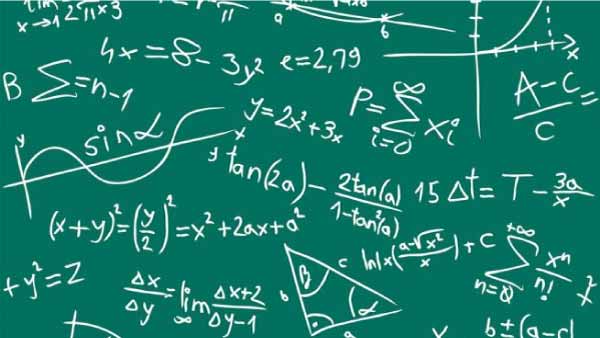Mathematics has several benefits and utilities, some of them are:
Improves problem-solving ability: Mathematics helps develop logical and analytical ability, which is essential for solving problems in different areas, including work and everyday life.
Broadens critical thinking skills: Math requires students to reason and analyze, which helps develop critical thinking skills and increases the ability to evaluate arguments and make informed decisions.
Encourages learning: Learning mathematics is an ongoing process, which allows students to develop their ability to learn new concepts and skills.
Career Utility: Math is essential in a wide variety of careers, including science, technology, engineering, finance, and business.
Improves the ability to understand the world: Mathematics is essential for understanding and explaining many natural and social phenomena, and for developing theories and models that help us better understand the world around us.
Classification of mathematics
Mathematics can be classified in several ways, but a common form is as follows:
Pure mathematics: refers to those that are studied by themselves, without a specific application. It includes areas such as logic, number theory, geometry, topology, and group theory.
Applied mathematics: refers to those used to solve problems in other areas, such as physics, economics and computer science. It includes areas such as control mathematics, mathematical optimization, and numerical mathematics.
Educational mathematics: refers to those taught in basic and secondary education, including areas such as basic mathematics, advanced and applied mathematics.
Statistical mathematics: refers to the study of methods for collecting, analyzing, and interpreting data. It includes areas such as descriptive statistics, statistical inference, and statistical modeling.
Financial mathematics: refers to the study of mathematical concepts and methods used in financial decision-making and in the valuation of financial assets.
This classification is a generalization, and there are areas that can fit into more than one category.
There are other ways to classify mathematics, some of which include:
- Classical and modern mathematics: Classics include areas such as Euclidean geometry and arithmetic, while modern include areas such as number theory and topology.
- Continuous and discrete mathematics: Continuous refers to mathematics that applies to concepts such as space and time, while discrete applies to concepts such as numbers and discrete structures, such as graphs and sets.
- Algebraic and analytic mathematics: Algebraic refers to the study of algebraic structures, such as groups, rings, and fields, while analytic refers to the study of concepts related to function and change, such as derivative and integration.
- Formal and structural mathematics: Formal refers to the study of formal systems and the rules of deduction, while structural refers to the study of the relationships and patterns underlying mathematical structures.
- Historical and current mathematics: Historical refers to the study of mathematical developments throughout history, while current refer to the study of current mathematical advances and developments.
Best way to learn
The best way to learn varies from person to person, but some general strategies that can help improve learning include:
Practice and apply: Practice is essential to understanding and retaining mathematical concepts. Solving problems and exercises is an effective way to practice and apply what has been learned.
Understand the basics: It’s important to understand the basics before moving on to more advanced topics. Progress should not be made to a new topic until the old one has been fully understood.
Personalized teaching: Each person has a different pace and learning style, so it is important to find the approach that best suits oneself.
Use of visual resources: Using graphs, diagrams, and videos can help visualize and better understand math concepts.
Teamwork: Working in a team and discussing problems and concepts with others can help gain a better understanding and broaden perspective.
Ask for help: If you have difficulty with a specific concept or problem, asking a teacher or tutor for help can be very helpful.
Difficulties
Some of the common difficulties people experience when learning math include:
Lack of understanding of the basics: If the basics are not understood, it is difficult to move forward and understand the more advanced topics.
- Attention and concentration problems: It can be difficult to maintain attention and focus during lessons and problem solving.
- Memory problems: It can be difficult to remember formulas and concepts, especially if they are not practiced regularly.
- Problem-solving problems: It can be difficult to apply the concepts learned to solve problems.
- Confidence and self-esteem issues: If you have difficulty, it can be easy to lose self-confidence and feel insecure.
- Problems with focus and organization: It can be difficult to organize time and focus on the tasks and exercises needed to improve.
It is important to note that these difficulties are common and that there are resources and strategies available to overcome them. Working with a tutor or teacher, practicing regularly, and using additional educational resources can help overcome these difficulties.


